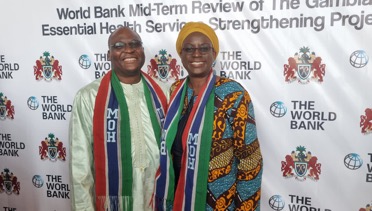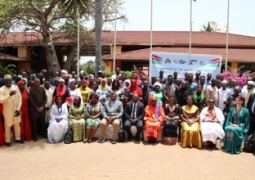
She was speaking recently at the World Bank Mid-Term Review in collaboration with Ministry of Health on The Gambia essential health services strengthening project with highlights of the achievements in the health sector between 2020 and 2023, and completion review of the COVID-19 Preparedness and Response project.
The Gambia essential health services strengthening project (P173287), which got US$30 million approved in October 2020, along with additional financing of US$50 million approved in November 2021, aims to improve the quality and utilisation of essential health services.
The project has supported such areas as the establishment of the national health insurance authority for the roll out of the national health insurance scheme. The Bank has also provided financial and technical support for drafting of the insurance bill and the enactment by the National Assembly.
Speaking during the review, held at the SDKJ conference centre in Bijilo, Ms Boroffice said that through their collective efforts, The Gambia government can create a health system that meets the needs of all Gambians, and that serves as a model for the region and the world.
She noted that over the past few years, they have worked closely with the Gambia government and with health professionals, community-based organisations, and other development partners to achieve this goal.
“We have supported a range of initiatives to improve health outcomes including the construction of new health facilities, the renovation of existing ones, and the improvement of medical equipment and supplies,” she recounted.
She added that they had also invested in key areas such as maternal and child health, establishing health insurance, clinical waste management, human resources for health, disease prevention and management, and birth registration.
And as a result of their collaborative efforts, she said they had seen some remarkable improvements in health outcomes across The Gambia.
“The impressive accomplishments are a reflection of the hard work and commitment of the people of The Gambia and efforts of the Health Ministry,” she noted, saying: “We know that there is still much work to be done. The challenges facing the health sector in The Gambia are complex and multifaceted, and they require a sustained and coordinated effort from all stakeholders.”
Also, she said that now more than ever, countries like The Gambia need to invest more in strengthening their health systems to make them more prepared and responsive to future pandemics.
Investing in healthcare and making it accessible to and affordable for all is critical to achieving sustainable development and ending poverty, the World Bank resident representative affirmed.





